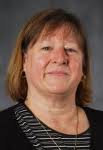 Wise Practice: Christie Cozad Neuger*
Wise Practice: Christie Cozad Neuger*
This week I sat down with one of my favorite pastoral theologians and got to catch up on what she’s doing with her life energy now and tell her about the work that I’m doing as well. Christie Cozad Neuger has written and edited several important books in pastoral care and counseling and also in the broader arena of the practice of ministry. Two of my favorites are Counseling Women and The Arts of Ministry: Feminist-Womanist Approaches. She remains a distinguished professor at Brite Divinity School, and gives her time to pastors in the Twin Cities region who are striving to improve their practice of ministry.
In The Arts of Ministry she describes four steps of a feminist counseling process in her chapter on pastoral counseling. They are also helpful to think about for human maturing in a more general way:
Coming to Voice – girls who at nine years old can speak their mind, often seem to ‘lose their voices’ for the sake of maintaining relationships as they reach teen age years. This is not a developmental shift so much as a response to cultural expectations (mostly implicit) about how to be a female and how to survive in a culture that doesn’t fully value them, a society that continues to allow indifference and violence toward women. To regain the power of speaking clearly and assertively, women need a space to begin naming themselves and their experiences openly and honestly, without judgment. In the power of naming, one’s sense of self and wholeness may also be recovered or owned for the first time.
Gaining Clarity – coming to voice and telling one’s own story in one’s own words is a start toward clarity. To move beyond naming things as they are, women must ask, “How do we know what we know?” This is a time of intentionally questioning everything and seeking deeper understanding of the factors that contribute to life as it is lived. When all the questions and critical thinking about life are on the table, then it may be time to reframe the stories of one’s life, with the newly discovered meaning reshaping those stories.
Making Choices – after coming to voice about the honest challenges and inequities in one’s life and gaining clarity about the character of those situations, it is time for action and new choices about living. When the problems that have debilitated one’s life have been reframed, the now deeper sense of knowing may offer up new possibilities for choices and a different way of being in the world.
Staying Healthy – becoming and staying healthy includes a willingness to continue assessing the choices one has made; the use of “personal and communal imagination” for the sake of finding creative possibilities; caring consistently for one’s body, mind and relationships; connecting with a network of supportive loving people; inviting relationships with people who are different; claiming one’s place in the culture or at the table; and contributing in some way to a greater good.
After a career of teaching for more than two decades Neuger found herself returning to the question of what her first sense of calling and thinking were, and about what she was most passionate. She wanted to support ministers in their work. What emerged from getting in touch with this idea has taken form as the “Institute for the Support of Pastoral Ministries” at United Seminary of the Twin Cities. She is giving her considerable gifts and wisdom of counseling, consultation and facilitating pastoral learning.
She says that she has learned it takes about five or more years in the practice of ministry for a real curiosity to rise up in most ministers, a curiosity which can invite new explorations of their own growing edges for ministry practice. Particularly challenging is the learning about pastoral conversation and counseling. This pastoral work is among the less public aspects of ministry and so it is not as open to the kind feedback needed for self-reflection and improvement. The work that Neuger is doing offers just such a reflective space with peers and a senior mentor.
One of the many things to admire about the work Christie Neuger does is her high level of commitment to helping people mine the “local knowledge” that is already available to them, to narrate what they know and to take ownership of their knowledge and action. This is a real contribution to fostering pastoral imagination and wise practice.
- “Wise Practice” is an Occasional Series Highlighting Scholars of the Practice of Ministry



